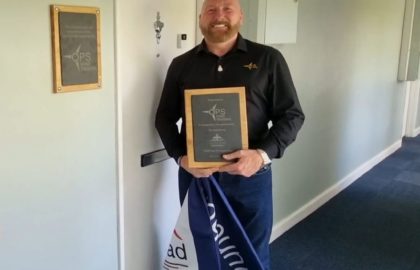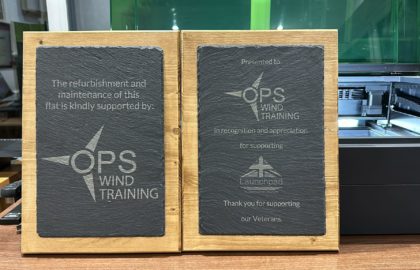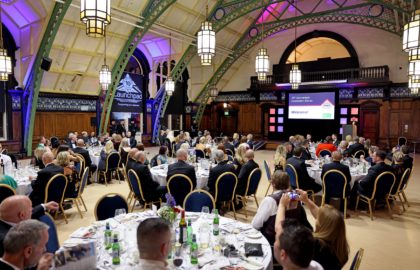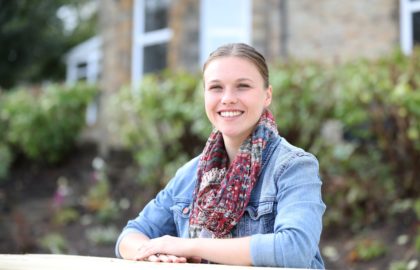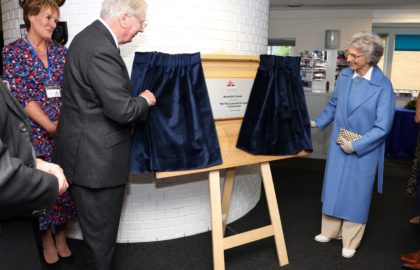Veteran residents living at Launchpad’s Avondale House in Newcastle have praised the work of two Occupational Therapy students.
Northumbria University students, Natalie Norman and Georgina Aplin, have been working at the house as part of a 10-week work placement which is a requirement of their degree. Both students are in the final year of a two-year apprenticeship course for a BSc Occupational Therapy degree.
They have been engaging with residents living at the house, which provides accommodation and support to veterans who have found the transition from the military to civilian life difficult.
For most veterans, the transition is smooth but some find it difficult to resettle and have faced challenges such as homelessness, poverty, mental and physical health issues, addictions, broken families and unemployment.
In the first couple of weeks, Natalie and Georgina took time to gain trust and build relationships with the residents and to find out what they wanted. They then developed a programme of activities which would engage and support the veterans with their mental health and wellbeing.
Residents have participated in weekly breakfast clubs, cooking classes where they have been refreshing their maths skills by using slow cookers to learn how to cook, gardening and outdoor walks. These activities have helped to develop their social interaction skills and their ability to function using daily living skills which they will require when they leave the house to move on to live independently.
Paul, one of the residents at Avondale House said he wouldn’t normally engage or interact in these types of activities but gained trust in Natalie and Georgina and is really pleased to have been able to participate in some of the activities, especially the walk around Bolam Lake and the cooking classes with the slow cookers.
Jonathan agrees. He said: “It gets me out of the house. It’s good to have other people come into the house and organise activities for the residents.”
Both Natalie and Georgina work as OT assistants within their jobs but are part of the first cohort of students to complete the course within two years (normally three), which requires them to complete two 10-week work placements – providing them with practical experience in a contemporary health and care environment.
Natalie works within the aids and adaptations team within Adult Social Care at Gateshead Council while Georgina works in the Gateshead Community Team Learning Disability Team, part of Cumbria, Northumberland, Tyne and Wear NHS Foundation Trust.
Commenting on the last 10 weeks, Natalie, said:
“The residents we have met have been really engaging and open with us. Some residents engaged well from the first week and others began joining groups and engaging individually as the placement went on. We have learned so much from the residents and feel really grateful they gave us their time while we have been here.”
Georgina commented:
“We have gained a lot of knowledge and experience of working with the veterans who have complex needs. We are grateful to them and the staff at Launchpad for giving us this opportunity and we hope some of the activities and initiatives we’ve put in place will continue after we have left.”
90% of the veterans who arrive at Launchpad are homeless and are supported for up to two years (longer if necessary). Now in its tenth year of operation, the charity provides accommodation and support, with the help of specialist providers, to support homeless veterans who have fallen on hard times and have found the transition from military to civilian life difficult.
Avondale House provides accommodation for 33 veterans and their partners and since 2013, over 620 veterans have been supported across all three houses in Liverpool, Newcastle and Durham.

